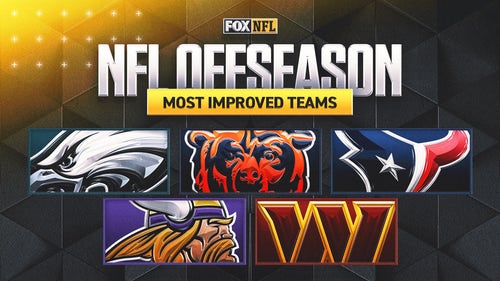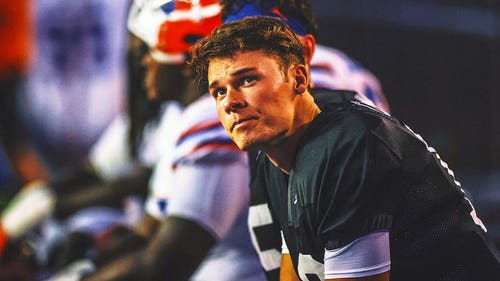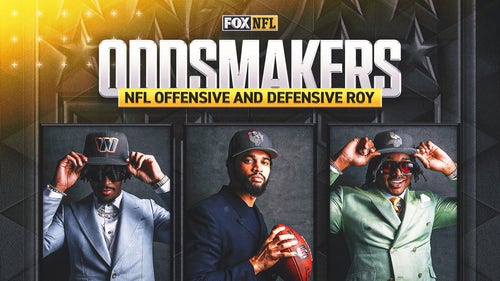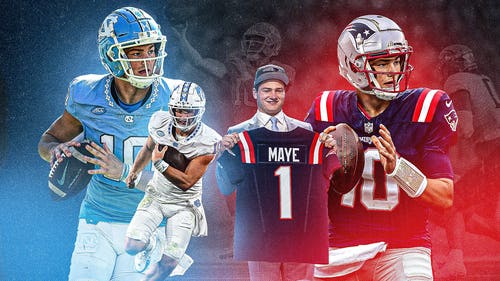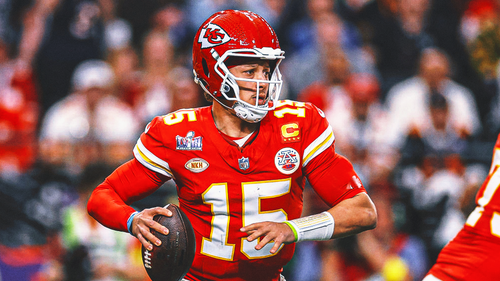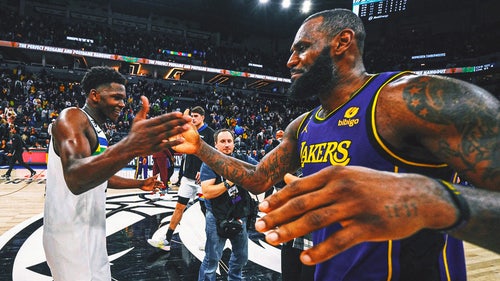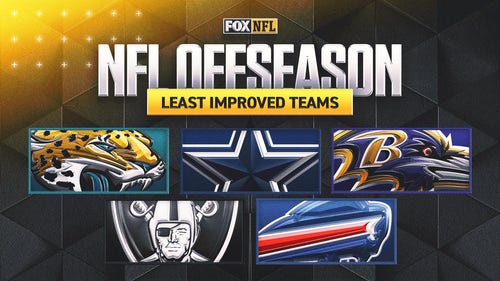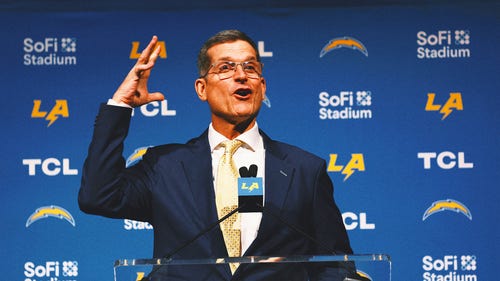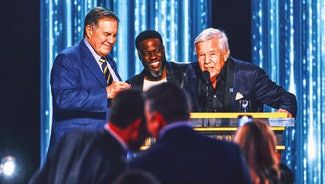
The man on the cutting edge with athletes: 10 questions with Dr. James Andrews

If a famous athlete gets hurt these days, three words are likely to follow: Dr. James Andrews.
He's the team physician for Alabama, Auburn and the Redskins, and just about every pro trainer has him on speed dial if they need a consultation. But it's not just the likes of Adrian Peterson, Bo Jackson, Jack Nicklaus and Drew Brees who've hobbled into his clinics in Birmingham and Pensacola.
Andrews performs up to 50 surgeries a week on high-schoolers, housewives and wounded weekend warriors. He has written a book, “Any Given Monday,” about preventing and treating injuries in youth sports.
We caught up with him between surgery shifts and got in 10 questions about sports, medicine and how he became the orthopedic surgeon to the stars.
Can you explain to the layman why almost everybody who's anybody goes to see Dr. James Andrews?
To be perfectly honest with you I don't know the answer to that question. But I've always been one who had a lot of self-criticism in trying to do the best I could do, and treated everybody as special regardless of what their age or ambitions were. Probably the thing that helped me most is I started off taking care of high school kids and small colleges, and those kids grew into big college and pros. They've always come back to me and always given me a lot of referrals.
Two things are essential for anybody in sports medicine. That's communication and availability. Just like right now, I'm doing two or three things at the same time including interviewing with you. That's been my life, man.
Is it hard to maintain an air of neutrality in the Iron Bowl, or were you going nuts like everybody else when Chris Davis was returning that field-goal attempt?
I felt good for Auburn, but it's not my favorite ballgame. It's not a lot of fun for me. I'm just hoping nobody gets hurt. I hope it's rainy and cold and I can put on a toboggan or hood and walk sideline to sideline and nobody will know who I am. I've always got doctors who work with me on both sidelines, so I try to be as impartial as I can and just get through the ballgame.
Given your workload, how do you unwind? Or do you even feel the need?
I take a week off at the beginning of football season, the first week of August, then usually a week off between Christmas and New Years. This year I took all my kids down to Key West for a week, but all I did was answer the phone since football season was wrapping up. People were calling and people were still getting hurt. I really spent most of my time talking to people and figuring out what to do with them when I got back to work.
It's been a battle, this football season. For seven months, seven days a week. Two games on Saturday and the Washington Redskins game, wherever they play on Sunday. So there's no time off. But that's my hobby and I love football, so I don't fuss about it.
Critics say the NFL and NCAA are going too far in their attempts to make the game safer. What do you think of all the rule changes?
I think it's admirable and I hope it helps, but football is still football. There are risk factors you are not going to control. This year, we had a number of serious knee injuries because instead of hitting high, players were hitting low. At least that's what it looked like. I don't know if it was true or not, but if you start hitting low you're going to have career-ending type injuries to the knee.
Of course, injuries to the brain are a lot more complex than injuries to the knee. But you don't want either one where your career is concerned.
I think what we really have to do is get rule changes with good refereeing in junior high and high schools. That's where head injuries really begin. We need to teach these young kids and prevent injuries at a young age. And we need to have just as good of medical care for young kids as we do pro athletes. As a matter of fact, we need better medical care because they're more vulnerable.
We need to mandate that all high schools have athletic trainers. They give emergency first aid and they recognize injuries before they become serious.
Your book, "Any Given Monday," addresses injury prevention in younger athletes. What's the best piece of advice you can offer parents and coaches?
The main thing parents need to know is let the kids be kids. Let them play multiple sports. The big problem we're seeing with today's youth sports is two words – specialization and professionalism. Specialization means playing one sport year-round and never having time for recovery. The body needs three to four months off each year from a specific sport to recover. Pro athletes do that, but not our kids. They need at least three months where they're not throwing a baseball or kicking a soccer ball or whatever.
Professionalism means these young kids are being trained like pro athletes, and their bodies are too vulnerable to take that kind of heavy-handed training. Parents think they are doing the best they can to get their kids a scholarship or whatever, but what they're really doing is burning them out and causing injuries.
You've helped oversee the revolution in sports medicine the past 30 years. What do you envision in the next 30 years and how the field will progress?
The big improvement has been in rehabilitation therapy. Of course, the big revelation back in the 1970s through today has been arthroscopic surgery. As for new revelations, I keep predicting the next thing is biologics – stem cell therapy, gene therapy, robotic surgery. That's what we're really working on right now. We haven't gotten to the research basis that we need to prove how to handle stem cell therapy and gene therapy, but it's coming.
In those cases, we're hoping to biologically enhance the healing process. For example, make ACL surgery heal better, longer and quicker. That's not a performance-enhancing situation. It's a healing-enhancement situation. It's perfectly legal and hopeful.
You love sports. Has that helped you be a better surgeon?
You know, you've got to be able to talk the athlete's language. I was an athlete growing up in four sports and was lucky enough to get a scholarship as a pole vaulter at LSU. I stayed in the athletic field and knew I wanted to be a physician. I went straight through medical school knowing what I wanted to do. I knew orthopedics was the specialty I needed to go into. I did a couple of fellowships in sports medicine. So I kept training toward a goal from way back in high school.
Being an athlete helps you know how to focus and lets you talk to athletes and understand their psychology a little better when they get hurt, how to be positive with them.
Did Adrian Peterson's amazing recovery from ACL surgery set the expectation bar too high for such injuries? How was he able to pull it off?
The problem is he was a very special patient. He had the best rehabilitation in Houston and with his trainer in Minnesota. He had 24-hour-a-day care and his rehabilitation was the key. It wasn't that I did anything special with the surgery. You've also got to realize what a unique individual he was for recovery.
One problem is that these young kids don't have that kind of specialized care. They keep thinking they can come back and play too quickly, and then they get hurt again. I had a 10th-grade kid in today who came back too fast from ACL surgery. He came in here to get re-done. The expectations of younger athletes are skewed because of what these high-level athletes can do. We have to protect them from coming back too fast.
Is there a downside in your success in that people expect you to perform miracles?
Well, the shoulders get pretty heavy. You'd be surprised. Everybody expects that even though they've had two or three failed surgeries they can be fixed. I had a kid, a baseball player, in here this morning who thought I could fix him. The hardest thing in the world is trying to bring them back down to reality and understand that maybe I can't do what they expect me to do.
The expectations weigh on you, but that's part of being successful. You know the hardest thing about success is maintaining success. You constantly have to have self-criticism and self-assessments to improve what you do. I never take it lightly. Every day I operate is like a Super Bowl for me as far as trying to make sure I do the best I can. If you ever get beyond that, you probably are not going to do a good job. So yes, the expectations weigh on you. Believe me.
What do you think of Obamacare?
Oh lord, I don't understand it. If you understand it, tell me. I had a patient come in today with an elbow problem and say he didn't have insurance 15 years ago. At this point he wanted me to fix it because he had gotten Obamacare. I had to send him home because he was way beyond surgical help 15 years after his injury. If we provided insurance for everybody, maybe we wouldn't have that kind of problem.
If Obamacare really works, then all power to it. The problem we have as physicians is being laden with paperwork and bureaucracy where we spend more time filling out paperwork and documenting things than we do working with patients in a direct relationship. So it worries me that the federal government is getting involved with medicine and burdening us with all kinds of regulations. They'll be telling you when to operate and what you can do and you have to go through all that just to get a patient taken care of. Obviously, we need to be able to document what we do. But my goodness, when it comes to an overall burden it's a problem.
I won't be so heavily involved in it, fortunately. But all young doctors are going to grow up with it. It's going to be hard on them. It's going to be a lot harder than patients realize.
I don't know, I'm all for taking care of the masses. We have a policy in Alabama and Pensacola that if a kid gets hurt in a high-school sport, we take care of them regardless of whether they have insurance or not. We've always done that. We've seen kids with injuries and no insurance who became superstars and model citizens after their pro careers. That's rewarding. That pays you right there.







































































































































